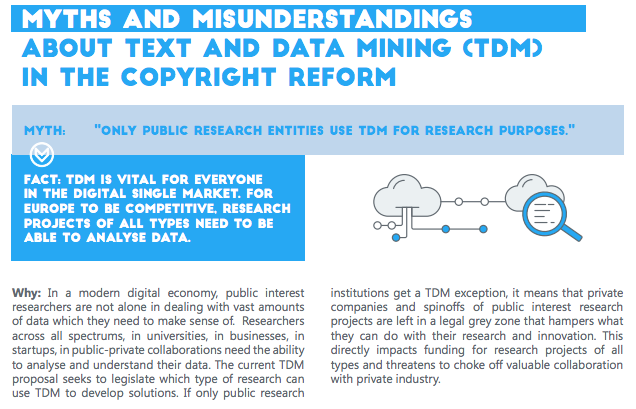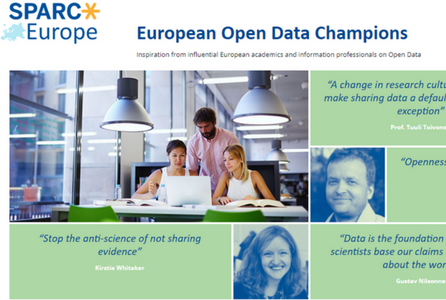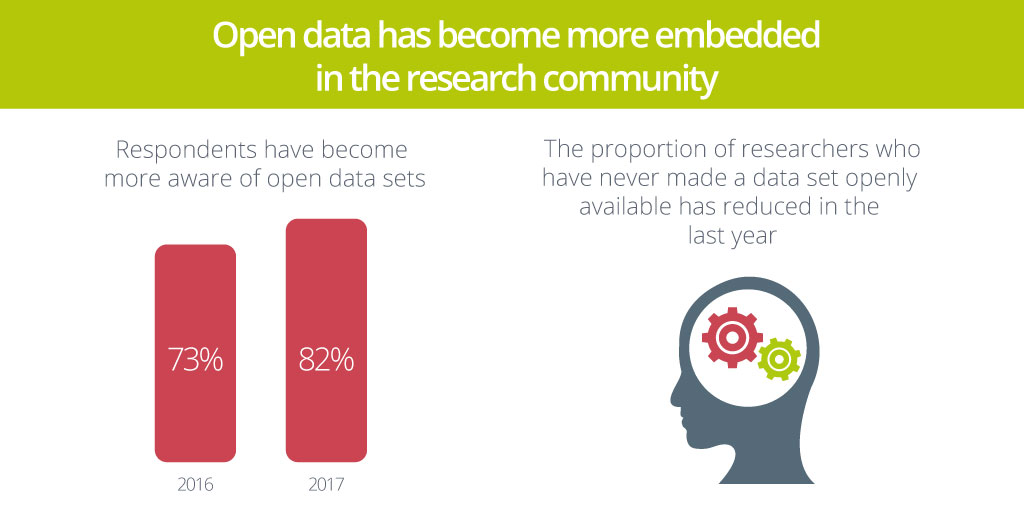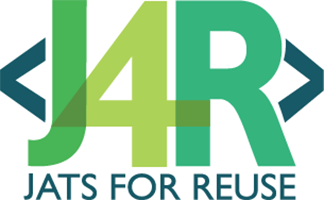Open Data Publishing
An overview of open data for data publishers including information on database rights, best practices and added data to Wikidata.
Send us a link
An overview of open data for data publishers including information on database rights, best practices and added data to Wikidata.
Melbourne researchers warn government: don't publish data down to the individual, ever.

On the need to recognise good practice, engage researchers early in their career with research data management and use peers to talk to those who are not ‘onboard’.
The latest report of the Knowledge Exchange initiative presents an overview and a synthesis of the evolving landscape of "Federated Research Data Infrastructures".

A broad TDM Exception is important for everyone (not just researchers), would boost Europe’s economy and doesn’t mean that publishers would lose money.

A surprising amount of publicly funded research data stays private. How could that change?
Text and data mining made easy with the allofPLOS project. Parsing tools together with the entire corpus of PLOS research articles for download.

Launching the next iteration of the SPARC Europe Open Access Champion program with the debut of our Open Data Champions.

Linking associated research outputs.

Investigating the implementation of data management and sharing requirements within development research projects.
Public Money, Public Code is a campaign of the Free Software Foundation Europe that seeks to transform that ideal into European law.
Ideas and data can interact, and our work can certainly benefit from the bad ideas that, in the short-term, do not seem to directly benefit discovery.
How to make widespread open data a reality.

An analysis of a collection of open-access datasets quantifies their benefit to the scientific community.
Figshare's annual report shows that open data has become more embedded in the research community: 82% of survey respondents are aware of open data sets and more researchers are curating their data for sharing.
Canadian Science Publishing's Mary Seligy provides a primer on standards, XML and JATS4R, which is driving improved reusability of scholarly content.

3 case studies that highlight the challenges surrounding decisions about how––and how best––to make things open.
Looking at some of the issues around the reuse of scientific data and open a conversation about how to deal with them.
Data-driven methods have come to dominate many scientific fields, but many fields exhibit distressingly low rates of reproducibility.
After a post-election frenzy to save government data, open-access advocates are refocusing their energies toward a long-term strategy.
Data labs, and the scant motivations for sharing data in basic science.

Guidelines for active and efficient data sharing between those generating data and those analyzing it.
SNSF grant-holders may deposit their scientific data in any recognized digital archive (commercial or not) that meets the FAIR principles.